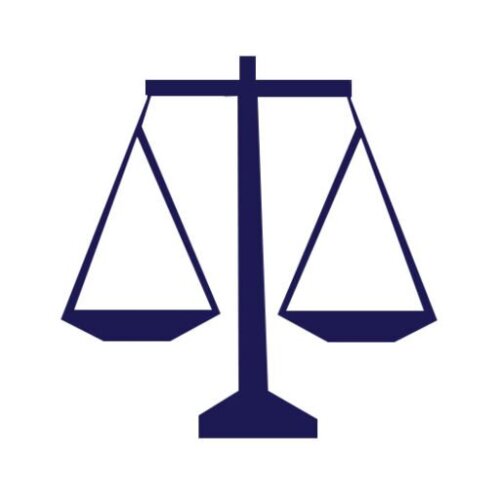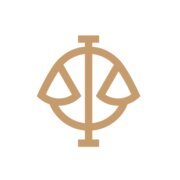Best International Lawyers in Greece
Share your needs with us, get contacted by law firms.
Free. Takes 2 min.
Or refine your search by selecting a city:
List of the best lawyers in Greece
About International Law in Greece
International law in Greece encompasses the rules and principles that govern the country's interactions with other countries and international entities. It includes treaties and agreements that Greece is a part of, as well as the country's obligations and rights under these international frameworks. Greek law is integrated with European Union regulations, which means international law often also reflects EU law. Greece's strategic location and history have made international law a vital aspect of its governance, particularly concerning maritime disputes, human rights, and cross-border transactions.
Why You May Need a Lawyer
Several common situations may arise where individuals or businesses require legal assistance in the realm of international law in Greece. These include:
- International Business Transactions: Companies need guidance for cross-border contracts, trade, and investment in compliance with international regulations.
- Maritime Law: Greece's significant shipping industry means frequent legal issues related to maritime disputes, shipping regulations, and international waters.
- Immigration: Navigating the legal requirements for residency, visas, and asylum can be complex due to international and EU laws.
- Human Rights Issues: Addressing cases of alleged human rights violations related to international conventions.
- Intellectual Property Protection: Ensuring that intellectual property rights are protected across borders.
Local Laws Overview
The Greek legal system is a civil law system heavily influenced by the Romanistic legal tradition, the Germanic Civil Code system, and EU law. Key aspects relevant to international law include:
- Treaties and Agreements: Greece participates in numerous international treaties, including United Nations conventions and EU regulations.
- Maritime Boundaries: Greece has specific laws concerning maritime boundaries and international shipping.
- Trade Regulations: Compliance with the EU customs regulations and trade policies are critical for international business.
- Human Rights Protections: Greece is bound by the European Convention on Human Rights and other international human rights agreements.
- Dispute Resolution: International arbitration and recognition of foreign judgments are integral parts of dispute resolution.
Frequently Asked Questions
What is the role of EU law in Greece's international legal framework?
EU law significantly influences Greece's international legal obligations as it must comply with EU regulations and directives, which often dictate trade, immigration, and environmental standards.
How does Greece handle maritime disputes?
Greece uses international maritime law, including the United Nations Convention on the Law of the Sea (UNCLOS), to handle disputes and establish maritime boundaries.
Can I use international arbitration for resolving disputes in Greece?
Yes, Greece supports international arbitration as a method for resolving disputes, and foreign arbitration awards are generally recognized and enforced under Greek law.
What are the requirements for starting a business in Greece as a foreigner?
Foreign investors must adhere to Greek commercial laws and EU regulations, which include business registration, obtaining the necessary licenses, and ensuring compliance with international trade laws.
How do I protect my intellectual property internationally in Greece?
Protection is ensured through registration with Greek authorities as well as international treaties like the Paris Convention and the EU's regulations on intellectual property.
Is Greece a member of the Hague Convention on International Child Abduction?
Yes, Greece is a member and follows the Hague Convention's processes for the return of abducted children.
What are the visa requirements for non-EU citizens in Greece?
Non-EU citizens must obtain the appropriate visa for their purpose of stay, such as tourism, work, or study, and comply with EU immigration regulations.
Does Greece recognize dual nationality?
Yes, Greece recognizes dual nationality, but the individual must comply with the legal obligations of both countries, such as taxation and military service.
How does Greece comply with international human rights law?
Greece adheres to international human rights laws through its constitution and international treaties like the European Convention on Human Rights.
What should I do if I am involved in a legal dispute with a Greek entity internationally?
Seek legal advice from a lawyer experienced in Greek and international law to understand your rights, obligations, and the best course of action for resolution.
Additional Resources
Here are some resources that may be helpful for those seeking legal advice in international law in Greece:
- Greek Ministry of Foreign Affairs
- Hellenic Chamber of Commerce
- European Commission Delegation in Greece
- Greek Bar Association
- International Maritime Organization
Next Steps
If you find yourself in need of legal assistance in international law in Greece, follow these steps:
- Identify Your Legal Needs: Clearly define the nature of your legal issue to seek tailored advice.
- Find a Qualified Lawyer: Look for legal professionals specialized in international law within Greece who understand both local and international regulations.
- Schedule a Consultation: Meet with your lawyer to discuss your situation, possible actions, and potential outcomes.
- Gather Documentation: Collect all relevant documents, contracts, and correspondence to assist with your legal issue.
- Stay Informed: Keep updated with any changes in local or international laws that may affect your situation.
Lawzana helps you find the best lawyers and law firms in Greece through a curated and pre-screened list of qualified legal professionals. Our platform offers rankings and detailed profiles of attorneys and law firms, allowing you to compare based on practice areas, including International, experience, and client feedback.
Each profile includes a description of the firm's areas of practice, client reviews, team members and partners, year of establishment, spoken languages, office locations, contact information, social media presence, and any published articles or resources. Most firms on our platform speak English and are experienced in both local and international legal matters.
Get a quote from top-rated law firms in Greece — quickly, securely, and without unnecessary hassle.
Disclaimer:
The information provided on this page is for general informational purposes only and does not constitute legal advice. While we strive to ensure the accuracy and relevance of the content, legal information may change over time, and interpretations of the law can vary. You should always consult with a qualified legal professional for advice specific to your situation.
We disclaim all liability for actions taken or not taken based on the content of this page. If you believe any information is incorrect or outdated, please contact us, and we will review and update it where appropriate.
Browse international law firms by city in Greece
Refine your search by selecting a city.

















